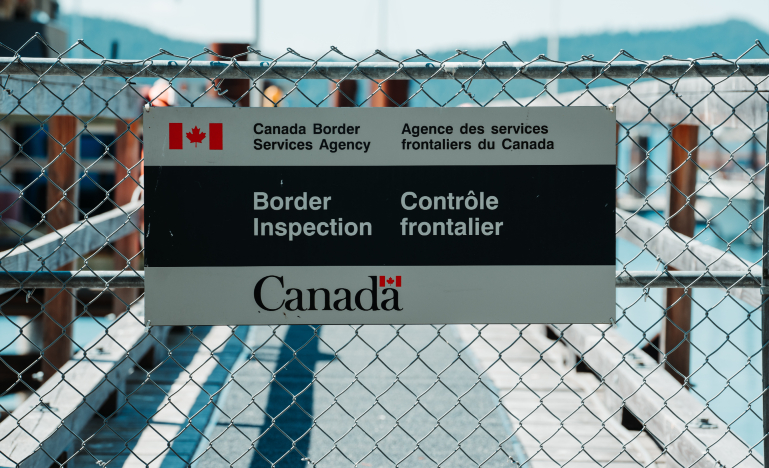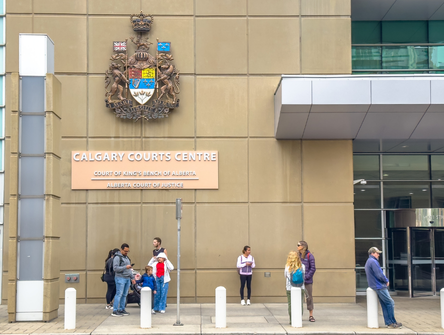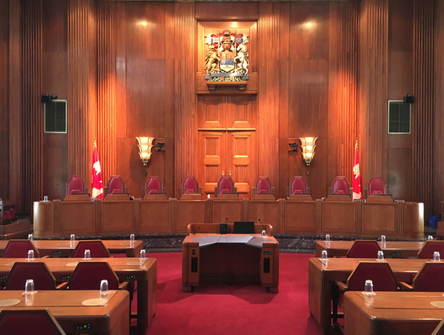Doubling down on a broken model
Canada's border services are to be subject to an oversight body. But will it have teeth?

Travelers can take heart: at last, it looks as if the Canada Border Services Agency might be subject to independent review and a forum for complaints about the conduct of its employees.
The federal government has re-introduced legislation, which passed first reading in May, to put the CBSA under the same oversight model as the RCMP. It involves converting the existing Civilian Review and Complaints Commission (CRCC) into a new Public Complaints and Review Commission (PCRC).
The change has been a long time coming. Two previous attempts to bring more accountability to the CBSA have died on the order paper.
The CBSA has never had an independent oversight mechanism outside of national security activities, falling under the umbrella of the National Security and Intelligence Review Agency (NSIRA) and the National Security and Intelligence Committee of Parliamentarians (NSICOP).
Previous legislative attempts at creating independent oversight came from a series of Senate public bills that sought to create an independent Inspector General for the agency, patterned on the same model used in the United Kingdom. The last attempt at this model passed the Senate unanimously in 2016, but was never sponsored for introduction into the House of Commons.
But Meghan McDermott, policy director at the BC Civil Liberties Association, is skeptical of the government's proposal. The current CRCC is under-resourced and toothless in ensuring its recommendations are implemented.
"I find it extremely disappointing and disturbing that two years after the George Floyd murder and conversation about police accountability, that we would have this bill introduced with much fanfare about how the CBSA will have an accountability mechanism, and yet they are hitching this wagon to a very broken, unacceptable model," says McDermott.
Anyone who has ever tried to hold the RCMP accountable or file complaints knows that getting the RCMP to investigate itself, then having the findings reviewed by the CRCC, is an exhausting process and rarely delivers justice, says McDermott.
Certainly not on time, McDermott adds. "The timeliness was an issue that we had to litigate over because they would sit on investigation reports for up to seven years before getting them back to the Commission to release them to the complainants," she says. Meanwhile, the RCMP would be replicating their mistakes elsewhere, possibly causing harm in other communities. "And there is no ability for the Commission's investigators or reviewers to do absolutely anything about it."
McDermott is concerned that oversight of the CBSA's work would run into similar problems and that the level of impunity that the RCMP can get away with will continue for the CBSA as well.
McDermott says that CBSA has always been a black box that doesn't share its procedure and policy manuals or guidance documents. That makes it incredibly difficult to determine how they interpret their powers and exercise their discretion. She noted that the BCCLA has heard from many Canadians and newcomers who have tried using the current internal complaints mechanism.
"Short of having legal representation, it's hard to get any traction with trying to hold CBSA accountable because of their internal complaints mechanism, which isn't legislated, and nothing is binding," says McDermott. "Even where people have hired lawyers to try to hold them accountable, it is exhausting and you are up against deep pockets and a whole team of lawyers from the Department of Justice."
According to a spokesperson for Public Safety Minister Marco Mendicino, the government chose the model in the wake of national security framework consultations in 2016. The Ministry hired former Clerk of the Privy Council Mel Cappe to prepare a paper to enhance the review function within the public safety portfolio, focusing specifically on CBSA. Cappe recommended this model of review body with the belief that this is consistent with other external bodies like NSIRA or the Office of the Correctional investigator and that it preserves ministerial accountability.
"The RCMP and the CBSA would carefully consider all recommendations and findings of the Public Complaints and Review Commission and be required to provide written responses to PCRC reports," says Audrey Champoux, press secretary to Mendicino. "Should the RCMP and the CBSA decide not to act on any findings or recommendations set out by the PCRC, they would be required to include reasons for not doing so."
The new bill does create legislated timelines for complaints to be addressed by the RCMP or CBSA. Still, it requires the status of implementation of recommendations to be reported annually to the minister of public safety. It also gives the chair of the PCRC the power to recommend that the RCMP and the CBSA Deputy Heads initiate a disciplinary-related process, or impose a disciplinary measure, under certain circumstances.
McDermott believes these to be weak measures overall.
"They were pushed into having to have a timeline because we took it to a court," McDermott says. "It's not like they're trying to get ahead of a problem. Even if they didn't have this in the bill, the courts would have forced their hands."
McDermott adds that reporting on the status of recommendations doesn't make up for the fact that the commission itself will not have binding powers.
"What we really need is a truly independent, impartial civilian-led organization that can do these investigations, and that when they make their findings and the recommendations related to those findings, that those are binding on the agencies they have investigated," McDermott says, citing that currently these reports tend to sit on a shelf and that law enforcement disregards.
McDermott says that parliaments are expected to use the best models to hold law enforcement to account and that models exist, but this proposal is disappointing because it is toothless.
Unlike the previous versions of the bill, this one requires that the PCRC publish disaggregated data, including race-based data, when voluntarily disclosed, in its annual reports. It would also require the PCRC to deliver public information and education programs to improve outreach to visible minority and Indigenous communities. It also outlines that the PRCR can investigate immigration detention facilities.
The government is proposing to spend $112.3 million on the PCRC over the next six years and $19.6 million annually after that.
"We are hoping this funding will allow for the hiring of more resources, whether it be operational, for the hiring of more personnel or CBSA agents, or to fund our required public education and information programs to increase public awareness of this new review body," Champoux says.


